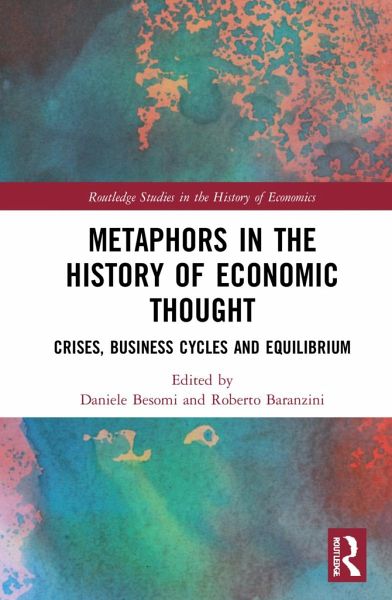
Metaphors in the History of Economic Thought
Crises, Business Cycles and Equilibrium
Herausgeber: Baranzini, Roberto; Besomi, Daniele
Versandkostenfrei!
Versandfertig in 1-2 Wochen
168,99 €
inkl. MwSt.
Weitere Ausgaben:

PAYBACK Punkte
84 °P sammeln!
Metaphors in the History of Economic Thought: Crises, Business Cycles and Equilibrium explores the evolution of economic theorizing through the lens of metaphors. The edited volume sheds light on metaphors which have been used by a range of key thinkers and schools of thought to describe economic crises, business cycles and economic equilibrium. Structured in three parts, the book examines an array of metaphors ranging from mechanics, waves, storms, medicine and beyond. The international panel of contributors focuses primarily on economic literature up to the Second World War, knowing again th...
Metaphors in the History of Economic Thought: Crises, Business Cycles and Equilibrium explores the evolution of economic theorizing through the lens of metaphors. The edited volume sheds light on metaphors which have been used by a range of key thinkers and schools of thought to describe economic crises, business cycles and economic equilibrium. Structured in three parts, the book examines an array of metaphors ranging from mechanics, waves, storms, medicine and beyond. The international panel of contributors focuses primarily on economic literature up to the Second World War, knowing again that the use of metaphors in economic work has seen a resurgence since the 1980s. This work will be of interest to advanced students and researchers in the history of economic thought, and economics and language.














